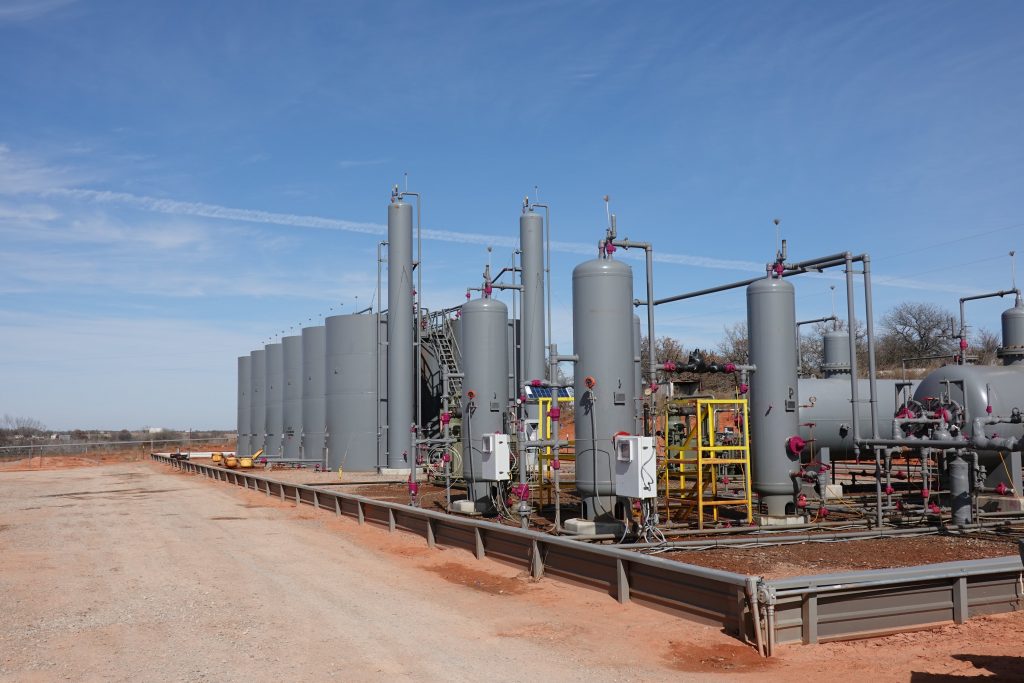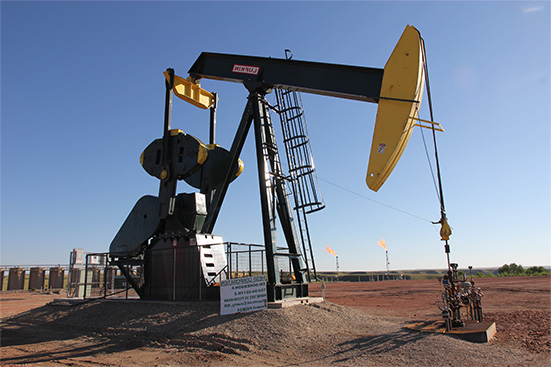
As qualified oil and gas investors, you understand the critical role crude oil plays in the global economy. Let’s discuss the transformative journey of a barrel of oil and reveal the exact yield of gasoline and diesel fuel, providing insights into the operational efficiency and profitability of refineries.
Every barrel of crude oil, containing 42 gallons, is more than a raw commodity; it’s an opportunity for value creation through refining. In the United States, sophisticated petroleum refineries can produce approximately 19 gallons of gasoline and around 11 gallons of ultra-low sulfur distillate fuel oil from a single barrel. This distillate is predominantly marketed as diesel fuel and, in some regions, as heating oil. However, the journey of a barrel does not end with these products. Refineries are also adept at producing a variety of other essential petroleum products, reflecting the diverse demand across markets.
The flexibility of refinery operations demonstrates the industry’s capacity for adaptation and strategic skill. Refinery yields of individual products are not static; they vary month to month, allowing refiners to align their output with fluctuating market demands and to seize opportunities for enhanced profitability. This operational flexibility is vital for navigating the seasonal shifts in product demand, such as increased gasoline production in summer months for the travel season, and a higher output of heating oil during winter.
For investors, understanding these refining dynamics is key to assessing the health and potential of investments in the oil and gas industry. The ability of a refinery to efficiently convert crude oil into high-demand products like gasoline and diesel fuel is a significant indicator of its operational excellence and market responsiveness.
Considerations for Oil and Gas Investors
- Invest in efficiency – Look for companies that consistently invest in enhancing technologies and operational efficiencies. Such investments not only boost yield but also increase margins and competitiveness.
- Monitor market trends – Stay updated on global energy demand trends, including the shift towards renewable energy, to anticipate changes in refinery product focus. Adjusting investment strategies according to these trends can position portfolios for long-term growth.
- Diversification – Consider diversifying investments across various segments of the oil and gas industry, including upstream production and downstream refining, to mitigate risks associated with market volatility.
contact dw energy
Want to learn more about oil & gas investing? Our expert team can provide you with more information or schedule a consultation to talk about diversifying your investment portfolio.

The Impact of Regulatory Changes on Refining Operations
Regulatory changes can impact the profitability and operational dynamics of refineries. From environmental regulations aimed at reducing carbon emissions to policies affecting the import and export of crude oil and refined products, staying up-to-date on regulatory trends is important for investors.
Considerations for Oil and Gas Investors
- Monitor regulatory trends – Be vigilant about upcoming regulatory changes in key markets, as these can affect refinery margins and the demand for certain products. Understanding these changes can help in making informed investment decisions.
- Invest in compliance and innovation – Companies actively investing in compliance measures and innovative technologies to meet or surpass regulatory standards tend to navigate the regulatory environment more efficiently. These investments help mitigate risks such as fines, operational disruptions, and reputational damage.
The conversion of a barrel of oil into about 19 to 20 gallons of gasoline and 11 to 12 gallons of diesel fuel highlights the important role refineries play in the energy supply chain. For oil and gas investors, understanding the nuances of refining operations, including the flexibility to adjust product yields in response to market demands, offers valuable insights into the sector’s dynamics. By focusing on efficiency, market trends, and diversification, investors can navigate the complexities of the oil and gas industry and identify opportunities for sustainable growth.
Technological Advancements in Refining Processes
The oil and gas industry is continually evolving, driven by technological innovations that improve the efficiency, yield, and environmental performance of refining operations. These advancements are reshaping the landscape, offering new opportunities for investors to support and benefit from cutting-edge developments in refining technology.
Considerations for oil and gas investors:
- Invest in technology leaders – Identify and invest in companies that are leading in the adoption and development of new refining technologies. These can include advancements in process optimization software and energy-efficient operations that reduce costs and improve margins.
- Focus on digital transformation – The digitalization of refinery operations, utilizing sensors, data analytics, and machine learning, can greatly improve operational efficiency and decision-making. Companies that invest in digital transformation are often better positioned to optimize production and respond to market changes more quickly.
By focusing on technological advancements in refining processes, investors can align with companies leading in innovation and efficiency within the oil and gas industry. This approach not only supports the growth and competitiveness of these companies but also enhances the sector’s sustainability and resilience against evolving market demands and challenges.
Turning Crude Oil Insights into Opportunities
Understanding the intricacies of the oil refining process, from the yield of gasoline and diesel from a barrel of oil to the impact of technological advancements and regulatory changes on operations, is essential for oil and gas investors. By focusing on operational efficiency, market responsiveness, and strategic adaptation to technological and regulatory landscapes, investors can navigate the complexities of the industry with greater insight and foresight. The dynamic nature of the oil and gas sector demands continuous learning and adaptation. Investors who stay informed about the latest trends in refining processes, technological innovations, and regulatory frameworks are better positioned to make strategic decisions that align with both current market conditions and future opportunities.
Investing in companies that demonstrate operational excellence, commitment to innovation, and proactive regulatory compliance will likely yield sustainable growth and resilience. As the industry evolves, these insights will guide oil and gas investors in identifying companies that are not only thriving in the present but are also well-prepared for the future challenges and opportunities that lie ahead.
Ultimately, the success of investments in the oil and gas sector hinges on a deep understanding of the entire value chain, from crude extraction to the refinery gate and beyond. By leveraging this knowledge, investors can contribute to the advancement of the industry while achieving their financial and strategic objectives.
Contact dw energy
Sources:
“How many gallons of gasoline and diesel fuel are made from one barrel of oil?” U.S. Energy Information
Administration, https://www.eia.gov/tools/faqs/faq.php?id=327&t=6
“Refining Margins,” Faster Capital, https://fastercapital.com/startup-topic/Refining-Margins.html
“Oil and petroleum products explained,” U.S. Energy Information Administration, https://www.eia.gov/energyexplained/oil-and-petroleum-products/refining-crude-oil.php
“New tech could provide a cheaper, less-polluting way to refine crude oil,” Science, https://www.science.org/content/article/new-tech-could-provide-cheaper-less-polluting-way-refine-crude-oil
“How Information Gives You Competitive Advantage,” Harvard Business Review, https://hbr.org/1985/07/how-information-gives-you-competitive-advantage
